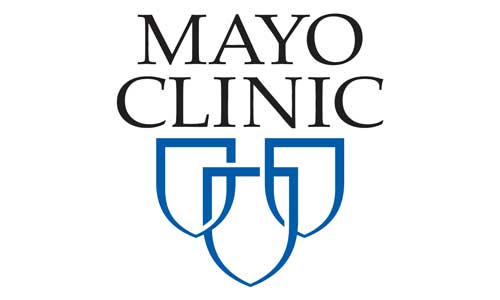This guide explains how diarrhea affects your well-being during and after cancer treatment, and what you can do to manage it. Topics covered:
- Overview of diarrhea, including common causes
- Top evidence-based practices and therapies to manage diarrhea
Diarrhea at a glance
Diarrhea can happen during and even after some cancer treatments, and some medications can contribute to diarrhea. Awareness of complementary therapies and lifestyle practices to ease the symptoms of diarrhea can help improve your quality of life.
Diarrhea: an overview
What is diarrhea?
Diarrhea occurs when your stools are loose and watery, and you may need to have a bowel movement more often than usual.
What can cause or trigger diarrhea?
Diarrhea can be caused by many different factors, including medications commonly used during cancer treatment.1Diarrhea. Johns Hopkins Medicine. Viewed September 23, 2024; Diarrhea. Mayo Clinic. Viewed August 1, 2024.
- Cancer treatments, including some chemotherapy, immunotherapy and targeted drugs and radiation to the abdomen or pelvis
- A reaction to other medications
- Complications of cancer treatment such as graft-versus-host-disease from bone marrow or stem cell transplant, or damage from radiation treatment
- A bacterial, parasitic, or viral infection
- Trouble digesting foods, food allergies, or sensitivities
- Inflammatory bowel disease
- Irritable bowel syndrome
- Recent surgery on the stomach, gallbladder, or intestines
- Recent antibiotic use
- Supplements including aloe, milk thistle, or high doses of oral vitamin C2American Cancer Society. What Is Diarrhea? April 22, 2024. Viewed October 31, 2024.
- Excess hormones from a tumor
What are signs and symptoms of diarrhea?
Diarrhea can be accompanied by any of these symptoms:
- Belly cramps and bloating
- Abdominal pain
- Upset stomach or nausea
- Frequent bowel movements
- Difficulty controlling your bowels
- Dehydration
- Headaches
- Fever
Because diarrhea can lead to dehydration, drinking extra fluids may be needed. Severe diarrhea for several days can indicate a serious condition requiring medical care. Consult your doctor if you experience abdominal pain or if you experience diarrhea for more than two days. Bloody diarrhea is always a concern. Call 911 or go to the emergency room if you:3American Cancer Society. What Is Diarrhea? April 22, 2024. Viewed October 31, 2024.
- Have bleeding from your rectum that won’t stop
- Have sudden, intense belly pain that won’t stop
- Can’t urinate (pee) or eat for a whole day or more
Top evidence-based practices and therapies for managing diarrhea
We present approaches to managing diarrhea backed by modestsignificant effects in at least three small but well-designed randomized controlled trials (RCTs), or one or more well-designed, mid-sized clinical studies of reasonably good quality (RCTs or observational studies), or several small studies aggregated into a meta-analysis (this is the CancerChoices definition; other researchers and studies may define this differently), goodsignificant effects in one large or several mid-sized and well-designed clinical studies (randomized controlled trials (RCTs) with an appropriate placebo or other strong comparison control or observational studies that control for confounds) (this is the CancerChoices definition; other researchers and studies may define this differently), or strongconsistent, significant effects in several large (or at least one very large) well designed clinical studies or at least two meta-analyses of clinical studies of moderate or better quality (or one large meta-analysis) finding similar results (this is the CancerChoices definition; other researchers and studies may define this differently) evidence of effectiveness.
Conventional therapies
If diarrhea is due to an infection, antibiotics may be prescribed by your doctor. Other medications are available to help with diarrhea; your doctor can recommend the best options for you.
Lifestyle practices
- Eating Well can reduce the severity and duration of diarrhea. Women eating a low‐fat, low‐lactose diet have experienced less diarrhea during pelvic radiotherapy. Immunonutrition also leads to less diarrhea during cancer treatments.4Pole L, Hepp N. How can Eating Well help you? What the research says. CancerChoices. April 14, 2024. Note that fiber, especially soluble fiber, may be recommended for diarrhea, especially chronic diarrhea. Fluid and mineral replacement is very important to prevent dehydration and becoming seriously ill from mineral imbalance. See BRAT Diet › from the Oregon Clinic
Complementary therapies
- Acupuncture is a practice of inserting fine needles into the body at specific points. People treated with acupuncture experience less chemotherapy-related diarrhea.5Hepp N. How can acupuncture help you? What the research says. CancerChoices. August 28, 2024. See Acupuncture: affordability and access ›
- Moxibustion involves burning an herb to apply heat close to the skin at specific points. People with cancer treated with moxibustion experience less nausea and vomiting during or after conventional cancer treatments.6Hepp N, Pole L. How can moxibustion help you? What the research says. CancerChoices. May 28, 2024. See Moxibustion: affordability and access ›
- Probiotics are living microorganisms that are available in many foods, such as yogurt, or as supplements. People with cancer treated with probiotics have a lower risk and severity of treatment-induced diarrhea.7Hepp N, Jackson A. How can probiotics and prebiotics help you? What the research says. CancerChoices. August 28, 2024. See Probiotics and Prebiotics: affordability and access ›
Helpful links

BRAT Diet ›
This includes an expanded list of foods for the customary BRAT (bananas, rice, apples, and toast) diet for people recovering from diarrhea
Explore other handbooks on cancer side effects
References


